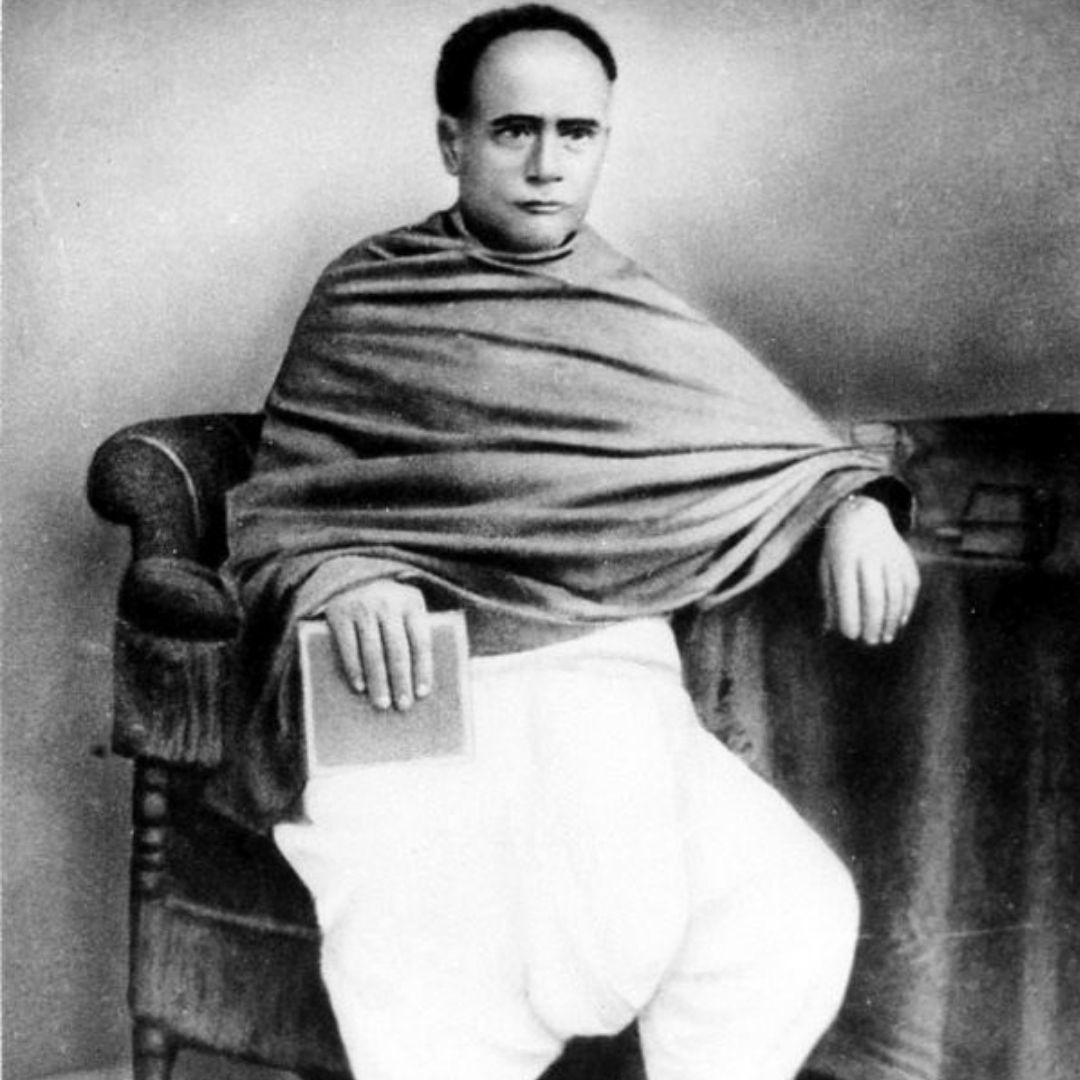
Image Credits: Medium.com
Remembering Ishwar Chandra Vidyasagar, The Father Of Bengali Prose' On His Birth Anniversary
Writer: Tashafi Nazir
For most people, journalism sounds hectic and chaotic. For her, it's a passion she has been chasing for years. With an extensive media background, Tashafi believes in putting efforts on presenting a simple incident in the most interesting way.
India, 26 Sep 2021 12:18 PM GMT
Editor : Madhusree Goswami |
A mountain girl trying to make it big in the city. She loves to travel and explore and hence keen on doing on-ground stories. Giving the crux of the matter through her editing skills is her way to pay back the journalism its due credit.
Creatives : Tashafi Nazir
For most people, journalism sounds hectic and chaotic. For her, it's a passion she has been chasing for years. With an extensive media background, Tashafi believes in putting efforts on presenting a simple incident in the most interesting way.
Ishwar Chandra was given the honorific title "Vidyasagar" ("Ocean of Knowledge"; from Sanskrit, Vidya "knowledge" and Sagar "ocean") after his incredible performance in undergraduate studies of Sanskrit and philosophy in the Sanskrit College in Calcutta.
Ishwar Chandra Vidyasagar, born as Ishwar Chandra Bandyopadhyay, was a well-known educator and social reformer of the country. He was born in a Bengali Hindu family in Birsingha village in Hooghly district of Bengal on September 26, 1820. Since his childhood, he had a quest for knowledge and it was so intense that he used to study under a street light as he couldn't afford a gas lamp at home.
He passed all examinations will flying colours and was bagged several scholarships for his incredible performance. He also took a part-time teaching job to support his family. Later on, he got himself enrolled in the Sanskrit College in Calcutta and passed out in 1841. As per the customes then, he got married when he was just 14-years-old.
In the year 1846, Vidyasagar joined the Sanskrit College as 'assistant secretary'. During the first year of his service, he recommended many changes to the existing education system.
He was given the honorific title "Vidyasagar" ("Ocean of Knowledge"; from Sanskrit, Vidya "knowledge" and Sagar "ocean") after his incredible performance in undergraduate studies of Sanskrit and philosophy in the Sanskrit College in Calcutta.
Widow Remarriage
Vidyasagar was a prominent campaigner for Hindu widow remarriage. He helped in the upliftment of the status of women, especially in Bengal. He sought to transform society from within, unlike some other reformers who sought alternative societies. He petitioned the Legislative council despite severe criticism. Even though widow remarriage was considered a significant breach of Hindu custom, Lord Dalhousie personally finalised the bill and the Hindu Widows' Remarriage Act, 1856 was passed.
Spread Of Education Beyond Higher Classes
The Wood's despatch of 1854 adopted a new policy towards 'mass education'. The official focus was on the higher classes of the population for education. Dubbed asthe 'Downward Filtration Theory', this implied that education continuously filters down from the upper classes to the common masses of the society.
In 1859, the government's education policy reiterated "the spread of vernacular elementary instruction among the lower orders". Upon this, Vidyasagar wrote a letter dated September 29, 1859, to John Peter Grant, the Lieutenant Governor of Bengal, underlining his perception.
The words "higher classes" in Bengali parlance entail caste, which bestows or withdraws the privilege of education on an individual by birth. Thus, Vidyasagar explicitly advocated for confining education to "higher classes".
Also Read: All You Need To Know About CD Deshmukh, RBI's First Indian Governor
 All section
All section














